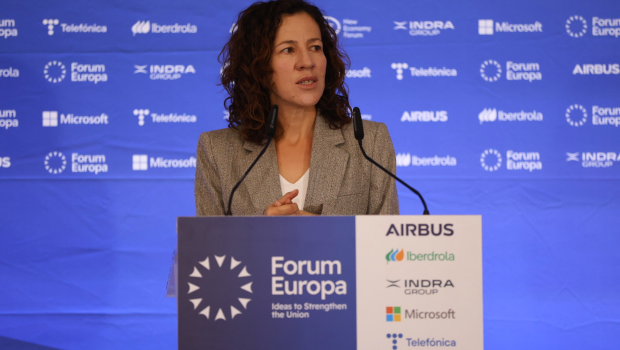The Executive Vice-President of the European Commission for Social Rights and Skills, Roxana Mînzatu, emphasised this Wednesday at the Forum Europa in Brussels the need to strengthen vocational training and digital skills to improve Europe's competitiveness.
During an event organised by New Economy Forum in the EU's capital, Mînzatu stressed that "the European social model is our strongest competitive advantage in the turbulent times we are going through", although she acknowledged that there are significant challenges in terms of qualifications.
The Vice-President warned about the decline in basic skills amongst the younger generations and the mismatch between available qualifications and the needs of businesses, particularly in technological sectors and the green transition.
"Competitiveness nowadays has less to do with the relative costs of labour. It is rather about the knowledge and qualifications that the workforce embodies", remarked Mînzatu, citing the recent Draghi report.
The European Commission will present a vocational training and education strategy in the coming months, which will include measures to make this training pathway more attractive and facilitate student mobility between countries.
Among the announced initiatives is the creation of a High-Level Skills Council that will bring together businesses, trade unions and educators to advise on the modernisation of curricula and strengthen links between academia and industry.
"We need a comprehensive approach to train workers. It is easy to talk about upskilling at 25 or 30 years of age, but it is more complex with workers aged 40 or 50", acknowledged the Vice-President.
Mînzatu announced that a roadmap for quality employment will be presented in December, which will include measures on working conditions, digitalisation and just transitions in sectors undergoing transformation.
The Vice-President also pointed out the need to address algorithmic management of work and the psychosocial risks associated with hybrid and digital work, as well as strengthening protection in subcontracting chains.
The Commission is also working on initiatives on the use of artificial intelligence in education, including teacher training and support for the European educational technology ecosystem.
"Everything we do must recalibrate our European social model in the transition towards an AI-driven and more digital world", concluded Mînzatu, who insisted on keeping people at the centre of these transformations.
The Vice-President announced that the next multiannual financial framework 2028-2034 will allocate a minimum of 100 billion euros to social objectives, with special emphasis on skills improvement.












